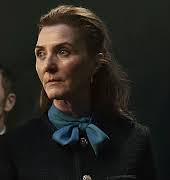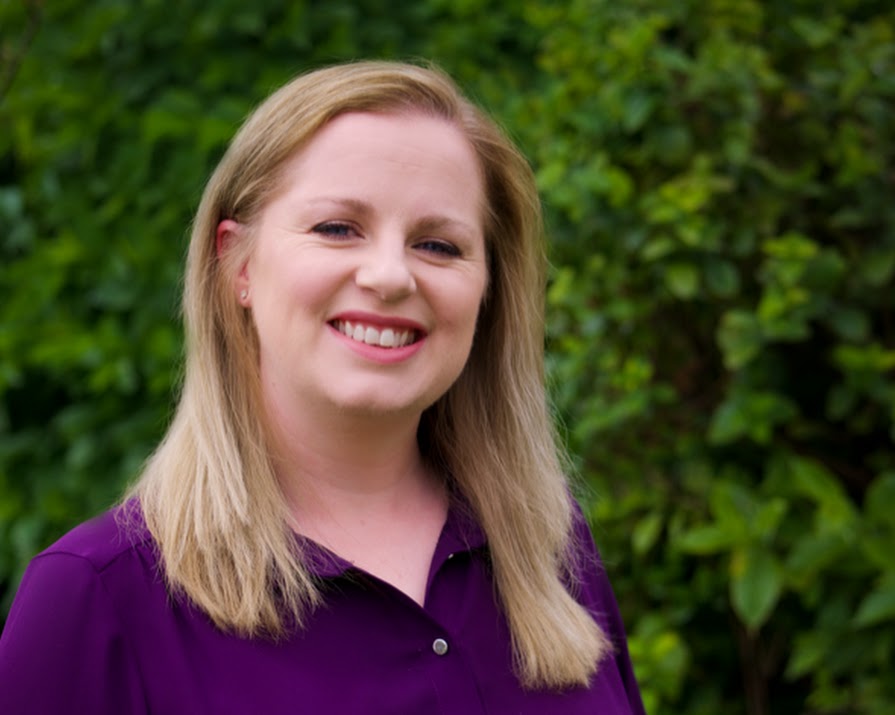
‘We all have our crosses to bear. Mine just happens to be multiple sclerosis’
Multiple sclerosis is the most common debilitating neurological condition affecting young adults in Ireland. Mother-of-one Sharon Henvey was diagnosed with the condition 10 years ago. Here she tells Amanda Cassidy about the impact it’s had on her life
I was 28 and I’d just moved from Dublin to Meath where I work in learning and development for the Irish League of Credit Unions. I started feeling weakness in my arms, pins and needles and extreme fatigue. I got shingles around the same time so I blamed the symptoms on that for over a year. In 2009 the left side of my face went completely numb and the pins and needles got worse. I went to my GP who referred me to Beaumont Hospital.
They gave me an MRI scan and confirmed I had lesions on my brain but that they’d do a lumbar puncture and confirm the results in six weeks. I was in complete shock. I didn’t know anyone who had MS. My first question was, ‘Am I going to be in a wheelchair?’ My second question was if I could have children. My specialist told me that although there was a chance I could pass it to my children, most people with MS live very full lives and manage their symptoms with medication.
Related: Juggling career and chronic illness: ‘I wear a mask everyday’
Overwhelming
The wait for the results was horrendous. For two months I was hanging onto the hope that they might have made a mistake. My paramedic friend sat me down and advised me not to google it. I stayed on trusted sites like MS Ireland because there is a lot of scary stuff out there. In my head I was in denial —this wasn’t going to happen to me. The stress of it exacerbated the symptoms and the pain started in my legs.
“I’d see people older than me doing things I couldn’t and would wonder what was wrong with me”
This freaked me out because I’d only just moved to Meath, I needed to drive. My brain started circulating the worst case scenarios. In January they confirmed I had MS. I had to accept it. They gave me leaflets about medication options and asked me to decide. This was so overwhelming. I had no medical training and I was being asked to decide the future of my health and the ability of my body.
Did I ever get angry? No, I was just too exhausted. I’d see people older than me doing things and would wonder what was wrong with me. That’s why there was also a sense of relief when I got the diagnosis. I wasn’t going crazy and imagining it. I was too burnt out to be angry. With MS you have limited stores of energy and I had to be selective with what I allowed myself to do. Being angry was a waste of energy.
Related: ‘Every day is a bad day’ My battle with Lyme disease
Everyone has a story
The way I see it is that we all have our crosses to bear. Everyone has a story. Mine just happens to be an MS cross. It took me about four years to come to terms with it. I cried for about six months. One day soon after the diagnosis, I woke up crying. I rang the MS Ireland helpline. I just couldn’t find the language to articulate what was going on. My mind was whirling. I was grieving the life I thought I would have.
“It took me about four years to come to terms with it. I cried for about six months”
My family was devastated and I felt so responsible for it. I felt guilty. This numbness I was feeling was so unique, it was impossible to describe. But suddenly there was someone at the end of the phone who got it. Someone else had the words I couldn’t find – they understood what I was going through. It wasn’t as exhausting.
They arranged a meeting with my local coordinator who told me I had delayed shock and that I needed some time out. I was trying to be stoic, to just get on with it but grief always comes back and I was grieving the life I thought I would have. I got counselling and was put on anti-depressants and to be honest, that meeting brought me back from the brink.
Invisible
You wouldn’t know if you were sitting opposite me that I had MS. I can disguise it. I relapsed during my pregnancy and now have some new problems with my right leg whereas before it was mostly on my left side.
“MS is my first consideration to everything I do – what type of shoes will I wear, do I have to stand… it impacts everything”
Pregnancy took a lot out of me, I now have more falls because my foot drops quicker so I trip. I have niggles and finger spasms and aches and some days I can’t get out of bed but I manage them well. Having MS has a big impact on every decision you make.
It is my first consideration to everything I do – what type of shoes will I wear, do I have to stand… it impacts everything.
Being mostly invisible is two sides of the same coin. In one way it is good, I don’t look disabled, I don’t experience discrimination or judgement but the other side of it is that on the days you do need support, you don’t look like you do. On the train, no one gets up to give me their seat, even though you nearly feel like you will collapse. Nobody has any idea. You want to be the same as everyone else, but you are not. I feel it is my purpose to share my story — to tell people you’ll come out the other side.
Out the other side
This year, the MS Ireland theme is visibility of symptoms. While my symptoms might be invisible, the interventions MS Ireland had on my life, stopped me from becoming invisible. I was fading away from the whole world. They helped me get my life back. I have a new relationship, I have my son who is nearly two, I went back to college and took up golf.
“In one way it is good, I don’t look disabled, I don’t experience discrimination or judgement, but on the days you do need support, you don’t look like you do”
There is life after MS – sometimes you need support because it swallows you up, it tries to win. For the last few years, I give a talk to those newly diagnosed about my experience. I say to them ‘you’ll come out the other side.’ I have to believe that I was given this condition for a reason. I feel it is my purpose to share my story.
If I can help one person to realise you can get through this and have really rich experiences in life, then that means the world.
You can find more information on MS from MS Ireland here.
As part of the Kiss Goodbye to MS campaign, MS Ireland is encouraging people to take part in the 9,000 steps for MS event, which represents the 9,000 people in Ireland living with the condition.
Feature Image: @Sharon Henvey
In conversation with Amanda Cassidy
Read more: Living with hidden illness: ‘Teachers told me to get on with it’
Read more: ‘I had to retire from work on medical grounds, I was devastated”























